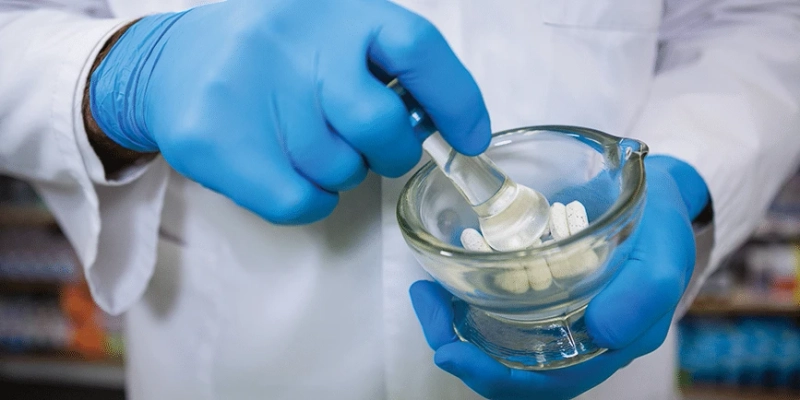Compounding medications, a practice as old as the field of pharmacy itself, has been gaining renewed attention and relevance in modern healthcare. This process, which involves creating personalised medications tailored to the unique needs of individual patients, is proving to be a versatile solution for various medical challenges. From addressing specific allergies to ensuring precise dosages, compounded medications offer numerous benefits that standard, mass-produced pharmaceuticals may not. This article delves into the advantages of compounding medications, exploring how this personalised approach can enhance patient care and outcomes.
Understanding Compounding Medications
Compounding is the art and science of preparing personalised medications for patients. Compounded medications are made based on a practitioner's prescription, in which individual ingredients are mixed together in the exact strength and dosage form required by the patient. This practice is essential when the available commercial drugs do not meet the needs of certain patients.
Pharmacies that specialise in compounding can create medications in various forms, including liquids, creams, gels, suppositories, and more, ensuring that the medication is accessible and easy to administer. This flexibility is particularly beneficial for patients with specific medical conditions, allergies, or sensitivities to certain ingredients.
Benefits of Compounding Medications
1. Personalised Dosage and Formulation
One of the primary benefits of compounding medications is the ability to customise the dosage and formulation to meet the specific needs of each patient. Standard medications are typically manufactured in limited dosages and forms, which may not be suitable for all patients. Compounding allows pharmacists to adjust the strength of a medication, combine multiple medications into a single dose, and alter the form of the medication to suit the patient's preferences or needs.
For instance, paediatric patients often require lower doses of medication than what is commercially available. Compounded medications can be made in the exact dosage required, ensuring the child receives the appropriate amount of medication without the need for splitting tablets or dealing with unpleasant tastes.
2. Allergen-Free Medications
Many commercially available medications contain common allergens such as lactose, gluten, dyes, and preservatives. For patients with allergies or sensitivities to these ingredients, taking standard medications can result in adverse reactions. Compounded medications can be formulated without these allergens, providing a safer alternative for these patients.
This is particularly important for patients with celiac disease who need gluten-free medications, or those with lactose intolerance who need lactose-free options. By removing potential allergens, compounded medications can improve patient adherence and overall health outcomes.
3. Availability of Discontinued Medications
Pharmaceutical companies occasionally discontinue medications for various reasons, including low demand or the introduction of newer drugs. However, some patients may still require these discontinued medications for their treatment. Compounding pharmacies can recreate these medications, ensuring that patients have continuous access to the treatments they need.
This capability is crucial for patients with chronic conditions who have found a specific medication effective but can no longer obtain it through standard channels. By providing these medications, compounding pharmacies help maintain continuity of care.
4. Enhanced Medication Adherence
Medication adherence is a significant issue in healthcare, with many patients failing to take their medications as prescribed due to various factors such as taste, difficulty swallowing pills, or complex dosing schedules. Compounding can address these issues by creating medications in forms that are easier to take and more palatable.
For example, if a patient has difficulty swallowing pills, a compounding pharmacist can create a liquid or topical form of the medication. Additionally, flavours can be added to improve the taste of oral medications, making them more acceptable to both children and adults. Simplifying the administration of medications can lead to better adherence and, consequently, better health outcomes.
5. Innovative Treatment Options
Compounding allows for innovative treatment options that are not available with standard medications. For instance, bioidentical hormone replacement therapy (BHRT) is a form of hormone therapy that uses compounded hormones identical in molecular structure to the hormones naturally produced by the body. This personalised approach can be tailored to the specific hormonal needs of each patient, potentially offering better results than traditional hormone replacement therapies.
Moreover, compounding can be used in pain management, dermatology, and veterinary medicine to create unique formulations that address specific patient needs. This versatility enables healthcare providers to explore new treatment avenues and offer more comprehensive care.
6. Support for Patients with Unique Health Needs
Patients with unique health needs, such as those undergoing hospice care or suffering from rare diseases, often require specialised medication regimens that are not readily available through commercial pharmaceuticals. Compounding pharmacies can create customised medications that address these specific needs, improving patient comfort and quality of life.
For example, hospice patients may benefit from compounded medications that combine multiple drugs into a single dose to simplify administration and manage symptoms more effectively. Similarly, patients with rare diseases who require non-standard dosages or formulations can receive the precise medications they need through compounding.
The Role of Compounding Pharmacies
Compounding pharmacies play a critical role in the healthcare system by providing customised medications that meet the individual needs of patients. These pharmacies employ specially trained pharmacists who are skilled in the art and science of compounding. They work closely with healthcare providers to ensure that each medication is tailored to the specific requirements of the patient.
To ensure safety and quality, compounding pharmacies adhere to strict standards and regulations set by organisations such as the Pharmacy Compounding Accreditation Board (PCAB) and the United States Pharmacopeia (USP). These standards cover various aspects of compounding, including the preparation environment, quality control, and documentation processes.
Challenges and Considerations
While compounding offers numerous benefits, it also comes with certain challenges and considerations. One of the primary concerns is ensuring the safety and efficacy of compounded medications. Unlike commercially available drugs, compounded medications are not subject to the same rigorous testing and approval process by regulatory agencies such as the Food and Drug Administration (FDA).
To address this issue, compounding pharmacies must follow best practices and guidelines to ensure the quality of their products. This includes using high-quality ingredients, maintaining sterile environments, and conducting regular testing for potency and purity. Additionally, healthcare providers must carefully evaluate the need for compounded medications and consider potential risks and benefits for each patient.
Another consideration is the cost of compounded medications. Since these medications are custom-made, they can be more expensive than standard medications. Insurance coverage for compounded medications can also vary, which may impact patient access. However, for many patients, the benefits of having a personalised medication outweigh the additional cost.
The Future of Compounding Medications
The future of compounding medications looks promising, with advancements in technology and growing recognition of the value of personalised medicine. Innovations such as 3D printing of medications and the use of advanced analytical techniques for quality control are set to enhance the capabilities of compounding pharmacies.
Moreover, as the healthcare industry continues to shift towards a more patient-centred approach, the demand for customised treatments is likely to increase. Compounding pharmacies will play a crucial role in meeting this demand, providing tailored solutions that address the unique needs of each patient.
Conclusion
Compounding medications offer a range of benefits that standard pharmaceuticals may not, including personalised dosages, allergen-free formulations, and innovative treatment options. By addressing the specific needs of individual patients, compounding can enhance medication adherence, provide access to discontinued drugs, and support those with unique health requirements.
While there are challenges to consider, such as ensuring safety and managing costs, the advantages of compounding make it a valuable practice in modern healthcare. As technology and patient-centric care continue to evolve, compounding pharmacy in Reservoir will be instrumental in delivering customised treatments that improve patient outcomes and quality of life.



